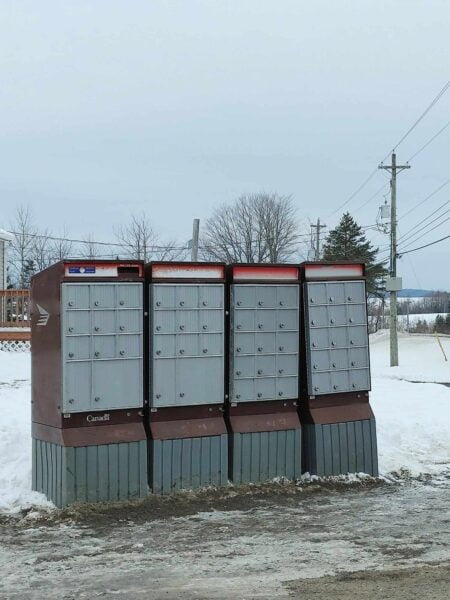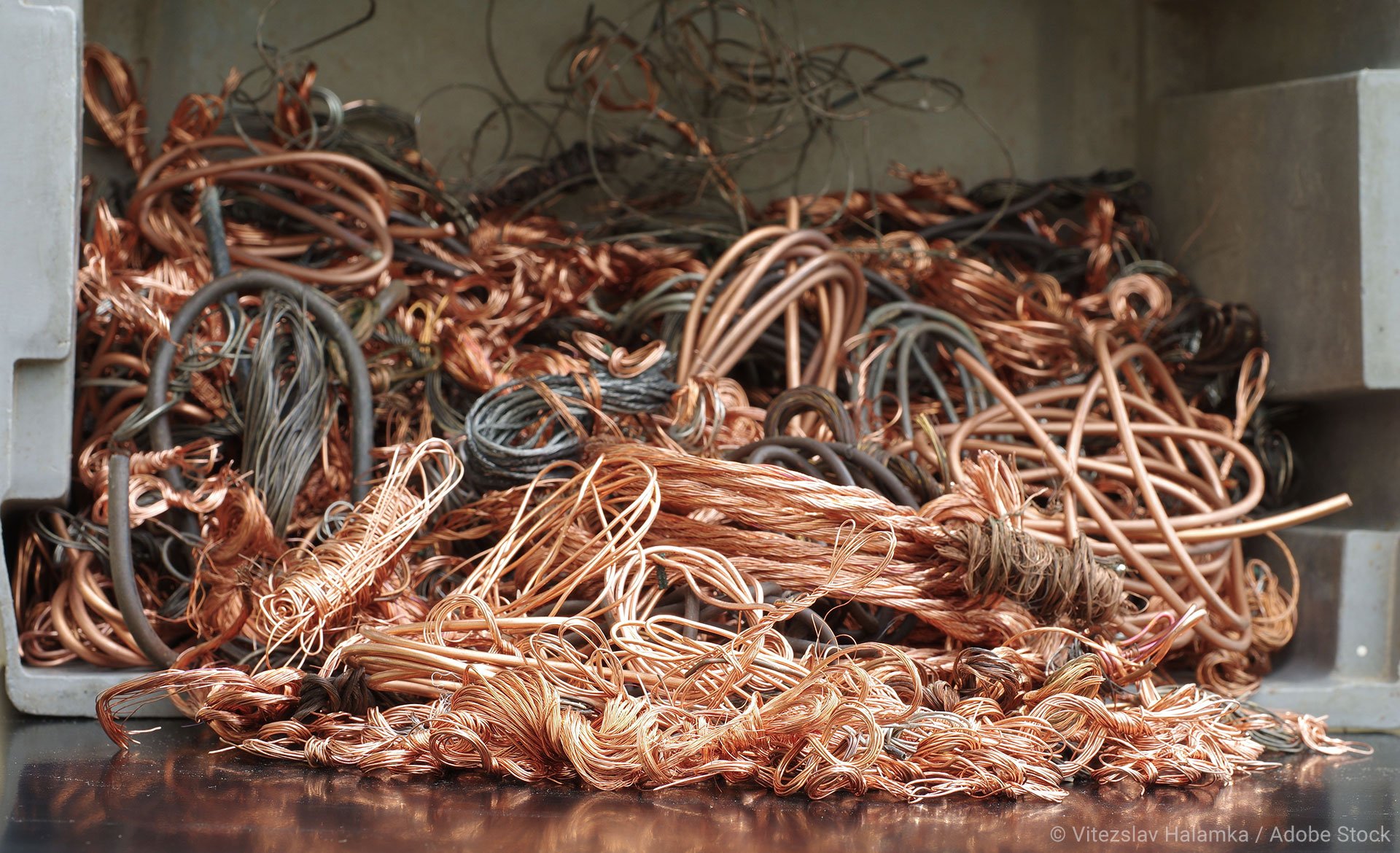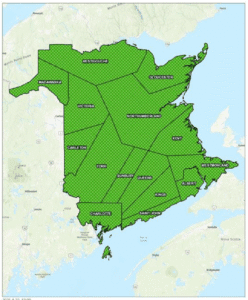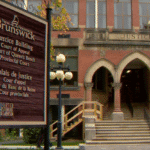Mail and copper wire theft top discussion
On Tuesday, Feb. 13, 2024, three members of the Western Valley RCMP met with the District of Carleton North Council to discuss ongoing concerns regarding theft and crime rates in the region.
Leading the presentation was Sgt. Dan Sharpe. He immediately addressed concerns regarding the rise in mail and copper wire theft.
“It’s not a new crime,” said Sharpe. “It’s been rampant throughout the district for the last few years.”
He noted that mail and wire theft rates tend to go through “ups and downs,” with months without any incidents followed by months where it happens frequently.
Sgt. Sharpe said that in 2022, the RCMP investigated five cases of wire theft in the region, adding that that number jumped to 16 cases in 2023. So far, in 2024, there have been three investigations for the Western Valley detachment. He said rates are significantly higher for rural detachment areas such as Keswick, as the criminals know the risk of being caught is lower.
“It’s an enticing crime for them to commit due to the delayed response,” said Sharpe after explaining how criminals steal the wire. While the wire cutting does trigger an alarm for the company, Sharpe noted by the time the RCMP are notified and dispatched, the criminals are “long gone.”
Sharpe told councillors the RCMP is keeping an eye on those known to steal copper wire but said dozens are involved, so it’s challenging. He encouraged the council and community members to look for signs of someone being involved in wire-cutting, such as seeing a vehicle in the early morning with the rear end weighed down, carrying hedge trimming equipment, or if someone appears to have soot on them. Residents are urged to contact the RCMP immediately if anything suspicious is observed.
Sgt. Sharpe explained that the criminals are either unaware or do not care about the significant impact of copper wire theft on the community, disrupting essential communication services to hospitals, doctors’ offices, and businesses. He said the province is working on updating laws which will make it far more difficult for criminals to sell their stolen copper, which will hopefully discourage the theft.
In discussing Canada Post mail theft, Sharpe noted that this crime is also “rampant.” He assured the council that Canada Post is paying attention to where theft is occurring, and in areas that are seeing increased amounts, they are changing out the post office boxes to tamper-resistant ones.
“They’re not foolproof; they can still get into them, but it takes quite a bit longer,” said Sharpe, who noted that the increased time it takes to break into the boxes is a deterrent.
Sgt. Sharpe told councillors that criminals typically target government cheques since the mailing dates are common knowledge. He noted that the ability to create bank accounts and deposit cheques online now adds to the difficulty of catching the perpetrators.
“They create fake online bank accounts with fake information, deposit the cheque, withdraw the cash, and then close out the account. It’s very difficult to track the money,” said Sharpe.

While the RCMP is working with Canada Post to target known criminals, Sharpe noted that many people are involved, increasing the difficulty in tackling the problem. He pointed out that both crimes, mail theft and copper wire theft, are connected to the rising problem of drug use. Like wire theft, rates of mail theft are on the rise. Sharpe shared that in 2022, they completed nine investigations. In 2023, they completed 14; in 2024, there were “five or six.”
The conversation became somewhat charged after Mayor Andrew Harvey asked Sharpe if he could provide detachment availability and patrolling details with the council.
Sgt. Sharpe told the mayor he could not share that information as it puts their detachment at risk. He did assure Mayor Harvey that they are available 24/7 and that if they know an area is being targeted, they respond accordingly.
Councillor Angel Connor told Sharpe that she lives in a very rural area, and they only see RCMP presence if it is called in. Sgt. Sharpe advised that if residents feel the need for a patrol, they can call and ask for a proactive patrol of their area. He said if there is a specific concern, to give as much information as possible, such as the colour or make/model of a vehicle.
“We are intel-driven; we can only respond to what we know about,” he told her.
Mayor Harvey expressed his concern that having the RCMP based out of Woodstock makes it difficult for the District of Carleton North to receive adequate surveillance since they are the farthest away from the detachment, which is located in Woodstock.
“I don’t want my guys out driving around; I want them doing something. If you’re having a problem, call,” he told the mayor.
“Your calls are probably reducing because people are becoming complacent and jaded because at three or four in the morning, I don’t know if you’re on patrol at night,” Councillor Scott Oakes told Sharpe.
Sharpe acknowledged the frustration.
“We hear this complaint a lot,” he said, assuring Oakes and other council members.
“We have the resources. I have the members to deal with these calls, so just pick up the phone and call. If you’re calling and you’re not seeing a police car out in your yard, then call me directly. I have the resources to make sure those calls are going to be answered.”
RCMP Cpl. James Gallant, who was at the meeting with Sharpe, told the council that the RCMP also undergoes regular curfew checks with those who have been released and have ankle monitors.
“So I know we are out in the communities, checking, but we can’t be out in one specific community 24/7 like everyone would love. We just can’t do that,” said Gallant.
“You can be,” said Mayor Harvey, visibly frustrated. “We pay enough for policing that you can be doing this; you’re just not. If you’re just relying on intel and responding to that intel, then there’s no visibility in these communities. Why can’t you be doing patrols and still respond to intel?”
Sharpe told Harvey the RCMP does undertake regular patrols. However, being intel-driven, the areas they are told to go to are based on the intel they receive.
“We have the resources, just tell us where you want us.”
The meeting closed with Mayor Harvey thanking the officers for attending.
“We appreciate the work you do and the challenges that you have,” he said.














